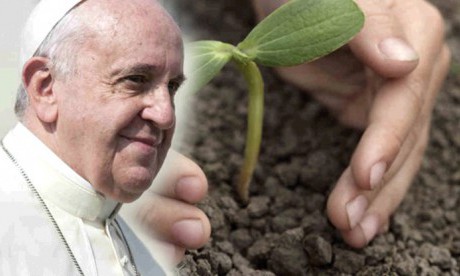No papal document in recent decades has generated as much pre-release interest as Laudato Si, an encyclical letter written by Pope Francis that the Vatican will release Thursday.
Considering the author’s global popularity, the high profile created by his office, and the politically polarizing topic – the environment, especially his insistence on action on climate change – the buzz is not surprising.
Also feeding interest is the fact that an early version of the encyclical appeared in the Italian press on Monday, which created a mini-drama about who leaked it and why, and cost the journalist who wrote the introduction his Vatican press credentials.
With the official release set for Thursday at 6 a.m. EDT, this is a good moment for a quick refresher on what an “encyclical” actually is, and why it matters that Francis is devoting one to this subject.
Making the rounds
An encyclical is, literally, a circular letter to be spread through a community. Etymologically, it comes from the Greek word egkyklios,which means “circle.”
Encyclicals are usually addressed to all the bishops of the world, but there are exceptions: Some are addressed to a certain group of bishops (i.e., the bishops of Asia); others specifically to the clergy and all the Catholic faithful.
Still others, such as Pope John XXIII’s 1963 encyclical “Pacem in Terris” (“Peace on Earth”), have been addressed to “all people of good will.”
Beyond containing spelling mistakes and errors in footnotes, the draft version of Laudato Si leaked by the Italian magazine “l’Espresso” on Monday lacked the dedication page, so it’s not yet clear to whom it’s addressed, although in the early version of the text Francis appears to suggest it’s intended for the whole world.
Leaks happen
Despite the frenzy generated by the leak, it’s hardly the first time a news organization published a papal document before its due date.
Pope Benedict XVI’s 2009 encyclical Caritas in Veritate, for example, was largely published before its release by the Italian paper Corriere della Sera. In July 1968, Time’s bureau chief in Rome, Wilton Wynn, “gladly” paid $500 for a leaked copy of Pope Paul VI’s encyclical on birth control, Humanae Vitae. Continue reading
Sources
- Crux
- Image: Parish of Haverford West
